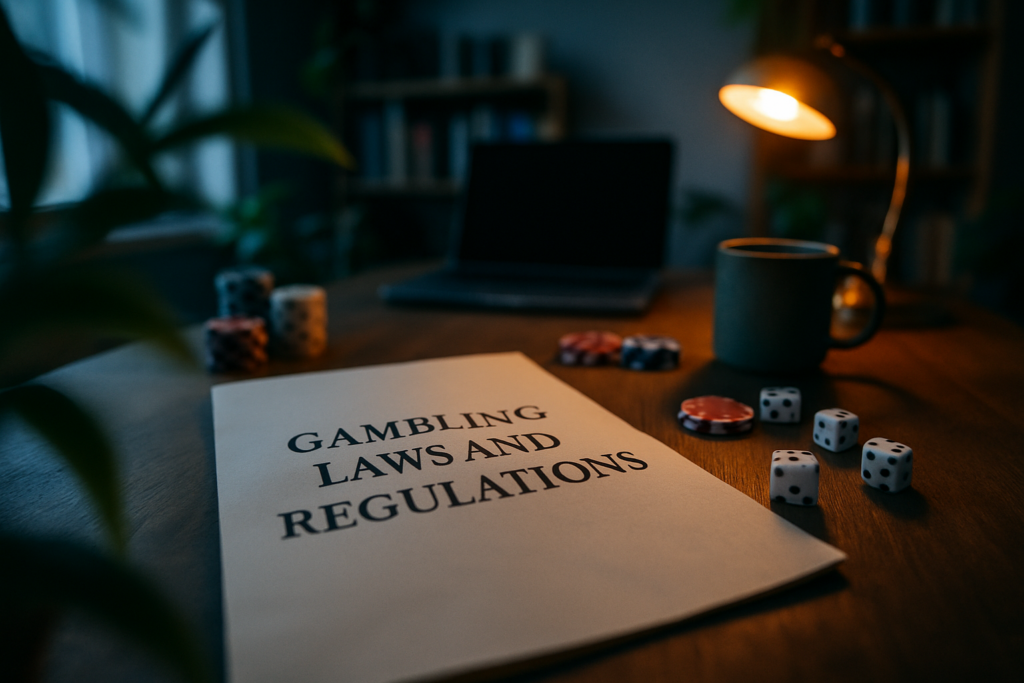Understanding the Impact of Legislation on the Gambling Industry
Legislation plays a pivotal role in shaping the gambling industry, affecting various facets of its operations globally.
I’ve observed how key legal changes and cross-country comparisons paint a comprehensive picture of its impact.
Key Legal Changes and Their Implications
Changes in gambling legislation significantly impact the industry.
Notable legal changes include the introduction of online gambling regulations, anti-money laundering measures, and stricter licensing requirements.
- Online Gambling Regulations: Governments are increasingly implementing regulations for online gambling to ensure fair play and protect consumers. For instance, the UK Gambling Commission mandates online operators to obtain licenses, ensuring compliance and safeguarding users.
- Anti-Money Laundering Measures: To combat illegal activities, authorities introduce stringent anti-money laundering laws. The European Union’s 5th Anti-Money Laundering Directive requires gambling operators to identify customers and report suspicious activities.
- Licensing Requirements: Many countries now require operators to obtain specific licenses. For example, the United States’ Unlawful Internet Gambling Enforcement Act (UIGEA) restricts online gambling, requiring operators to adhere strictly to state laws.
These changes influence how operators conduct business and their ability to provide services across different jurisdictions.
Comparing Legislation Across Different Countries
Legislation varies widely across countries, presenting both challenges and opportunities for global operators.
- United States: Each state has autonomy over its gambling laws. States like Nevada and New Jersey have legalized online gambling, while others maintain strict prohibitions.
- United Kingdom: The UK maintains a comprehensive regulatory framework, with the Gambling Commission overseeing both land-based and online gambling activities.
- Australia: Australian law prohibits online casinos but allows online sports betting, regulated by individual states.
- Macau: Known as the gambling hub of Asia, Macau has rigorous regulations, limiting licenses to a few operators and heavily regulating casino operations.
By understanding these differences, operators can navigate the complex global landscape, ensuring compliance and optimizing their business strategies.
Case Studies of Legislation in Major Gambling Markets
The impact of legislation on gambling significantly varies across major markets.
Each region adopts unique approaches to regulate the industry, influencing global operations differently.
The European Union’s Approach to Gambling Regulation
The EU’s approach to gambling regulation encompasses diverse national laws. Members implement specific regulations while adhering to broader EU directives.
For instance, the UK Gambling Commission enforces strict guidelines on online gambling operators to ensure transparency and consumer protection.
In contrast, Malta’s Gaming Authority offers favorable conditions for online operators, focusing on fostering an industry-friendly environment.
These differences illustrate the varied regulatory frameworks within the EU, which affect market dynamics and operator strategies.
The United States’ State-by-State Legislation Model
The US employs a state-by-state model for gambling legislation. Jurisdictions like Nevada and New Jersey have well-established regulations permitting various forms of gambling, including online betting.
Conversely, states such as Utah outlaw all gambling activities.
The disparity in legislation requires operators to tailor their compliance strategies for each state.
This model demonstrates the complexity of navigating the US market and highlights the significant influence of localized regulatory environments on business operations.
Asia and the Pacific: Varied Regulatory Landscapes
Asia and the Pacific region present diverse regulatory landscapes. Macau stands out with its liberal gambling laws, attracting significant casino investments and tourism.
In contrast, Japan recently began permitting integrated resorts, signaling a cautious approach to gambling legalization.
Australia enforces stringent regulations on both land-based and online gambling, prioritizing problem gambling prevention.
These examples showcase the region’s varied legislative attitudes, impacting market accessibility and strategic planning for operators seeking entry into these diverse jurisdictions.
Consequences of Regulatory Changes on the Gambling Industry
Legislative changes significantly shape the gambling industry. These regulations impact economic factors, online vs. physical venues, and overall market dynamics.
Economic Impact on the Gambling Sector
Regulatory changes can immediately affect revenue, tax income, and job opportunities in the gambling sector.
For instance, when increased taxes or stringent licensing requirements are implemented, operators may face higher operational costs. In turn, some operators might relocate to more lenient jurisdictions, causing a shift in economic benefits.
Recent data from the UK Gambling Commission shows that stricter regulations led to a 4% decline in Gross Gambling Yield (GGY) from 2020 to 2021.
Conversely, when countries like Malta and Gibraltar offer favorable tax regimes and streamlined licensing, they see a boost in gambling-related economic activity, attracting operators and bolstering local economies.
Effects on Online vs. Physical Gambling Venues
Regulatory changes can affect online and physical gambling venues differently.
Online platforms often face varied challenges, such as :
- stringent cybersecurity requirements
- international compliance standards
For example, the implementation of the General Data Protection Regulation (GDPR) in the European Union significantly impacted online gambling operators, necessitating robust data protection measures.
In contrast, physical venues are affected by local zoning laws, smoking bans, and restrictions on operating hours.
For instance, Australia’s introduction of strict advertising bans and limited operating hours in certain states significantly reduced foot traffic in physical casinos.
In Macau, physical casinos had to adapt to licensing changes that emphasized reducing local gambling addiction rates, ultimately impacting revenue streams.
The adoption of online gambling laws in the United States, like the 2018 Supreme Court ruling allowing states to legalize sports betting, has generated different results across states.
States embracing online gambling have seen increased tax revenues, while those imposing strict regulations experienced slower market growth.
Overall, the regulatory landscape continues to shape the financial and operational aspects of both online and physical gambling venues, with each sector adapting to maintain compliance and profitability.
Future Trends in Gambling Legislation

Emerging trends signal significant shifts in the global gambling ecosystem. Market forecasts and tech advancements suggest evolving regulatory landscapes.
Predictions for Emerging Markets
Emerging markets, such as Brazil, India, and Africa, are expected to experience substantial growth due to evolving regulatory frameworks. Brazil’s potential legalization of online gambling could unlock a market projected to generate $2 billion annually (source: H2 Gambling Capital).
Similarly, India’s digital market is poised for exponential growth as legal clarity and regulatory developments unfold.
African nations like:
- Nigeria
- Kenya
where mobile penetration is high, are establishing comprehensive guidelines to regulate and attract foreign investment.
These markets can catalyze industry growth by attracting diverse operators and sponsors.
Technology’s Role in Shaping Regulation
Technology influences legislation by introducing new regulatory challenges and solutions.
Blockchain technology, for example, enhances transparency and operational integrity in gambling platforms, prompting regulators to update compliance requirements.
In 2022, the global adoption of blockchain in gambling was estimated at $93 million (source: MarketsandMarkets).
Additionally, artificial intelligence (AI) and machine learning are improving gambling addiction monitoring, leading to stricter responsible gaming measures.
Regulators are also leveraging data analytics to monitor compliance and detect fraudulent activities, increasing the overall integrity of the gambling ecosystem.
These technological advancements necessitate adaptive and forward-thinking regulatory frameworks worldwide.



